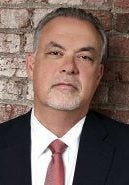A new watchdog group just filed a petition with the FCC to protect them.

The channel’s new regulatory watchdog has launched a bid to save agents’ rural health care businesses from an FCC ban.
Technology Channel Sales Professionals (TCSP) this week filed a petition with the Federal Communications Commission requesting it revise a key ruling.
The FCC in 2019 issued an order regarding rural health care. The FCC was attempting to curb “double-dipping” that it saw from consultants who work with rural health care customers. These consultants, whom rural hospitals and clinics directly pay, were also getting sales commissions from telecom providers. Thus, the FCC banned sales consultants from earning commissions from a rural health care telephony sale.
Unfortunately, the broad nature of the order excluded agents from making commissions on rural health care deals.

The Alliance’s Bill Power
“Basically they said sales agents in our channel can no longer get paid by the telecom providers for rural health care deals. That had an impact, obviously,” said Bill Power, CEO of the Alliance Partners and president of the TCSP.
But the situation worsened as service providers interpreted the broad FCC ruling. One provider elected to stop paying paying commissions on any rural health care account – past, present and future – as opposed to those established in 2020 and later. That meant some partners would lose commissions on deals they had already sold.
Channel partners feared for the worst.

IQ Wired’s Darcee Nelan
“It was a big deal for some of us agents, because we had been working with health care clients going back to 2010,” said Darcee Nelan, CEO of IQ Wired and chair of TCSP. “We had a huge base, and for us, this represented a massive hit financially.”
The Response
So the channel began organizing. Nelan encountered other agencies who whom the FCC ruling had troubled. Nelan and executives from companies like Telarus, Intelisys, TBI and other companies met with the service provider that had nixed all rural health care commissions, and the service provider ultimately changed its policy.
But they knew they needed to do more if they wanted to preserve their businesses. The FCC’s order impacted the organizations under the umbrella of the Universal Service Administrative Company (USAC) nonprofit, and that included certain urban health care facilities.
“In reality, an agent that has a hospital in downtown New York as a customer potentially could be impacted by these roles,” Power said.
Moreover, the FCC had vowed to “normalize” the way it handles all of the programs under USAC.
“That’s a scary phrase for us, because that means they can take the same approach for those other programs that are handled under USAC. Any agent that is involved in education may also feel the brunt of this rulemaking,” Power said.
It wasn’t enough to petition the service providers. The agents needed to petition the FCC.
“After a good bit of deliberations, we realized that it was not only important to get the providers to change their policies,” Nelan said. “It was also important to get the FCC to change its regulations.”
As a result, these master agents and direct-selling agencies chose to form the TCSP, a regulatory watchdog representing the channel’s interests. Nelan asked Power to use his experience leading the Alliance Partners, the master agent consortium, to lead the new lobbying group.
The interested parties assembled, raised approximately $65,000 and hired the law firm and advocacy group Wiley Law. Thus, the Technology Channel Sales Professionals watchdog group came to be.
Petition
The new lobbying group announced its official petition to the FCC this week. Numerous influential channel executives have testified in the petition, including TBI‘s Pete Shah, Telarus‘ Richard Murray and V1Data Communications‘ John Griffin.
The petition seeks to demonstrate that that telecom agents “aren’t the bad guys,” Nelan said.
“We’re actually performing a service, generally at no cost to the customer. And we’re encouraging competition. We’re getting more people involved,” said Nelan, who earned a Channel Influencer award for her organizational efforts.
Nelan and Power are urging partners and providers to sign the petition and make a comment to the FCC. They say they will succeed only if they raise their voices in unison and make their presence known.
“We are no longer outliers. We are mainstream, and I think everyone knows that,” Nelan said. “For customers, the preferred method of purchasing is generally through an agent — a trusted adviser.”
Listen to Power and Nelan talk more about the TCSP on the Channel Partners podcast, Coffee with Craig and James.
Read more about:
AgentsAbout the Author(s)
You May Also Like


